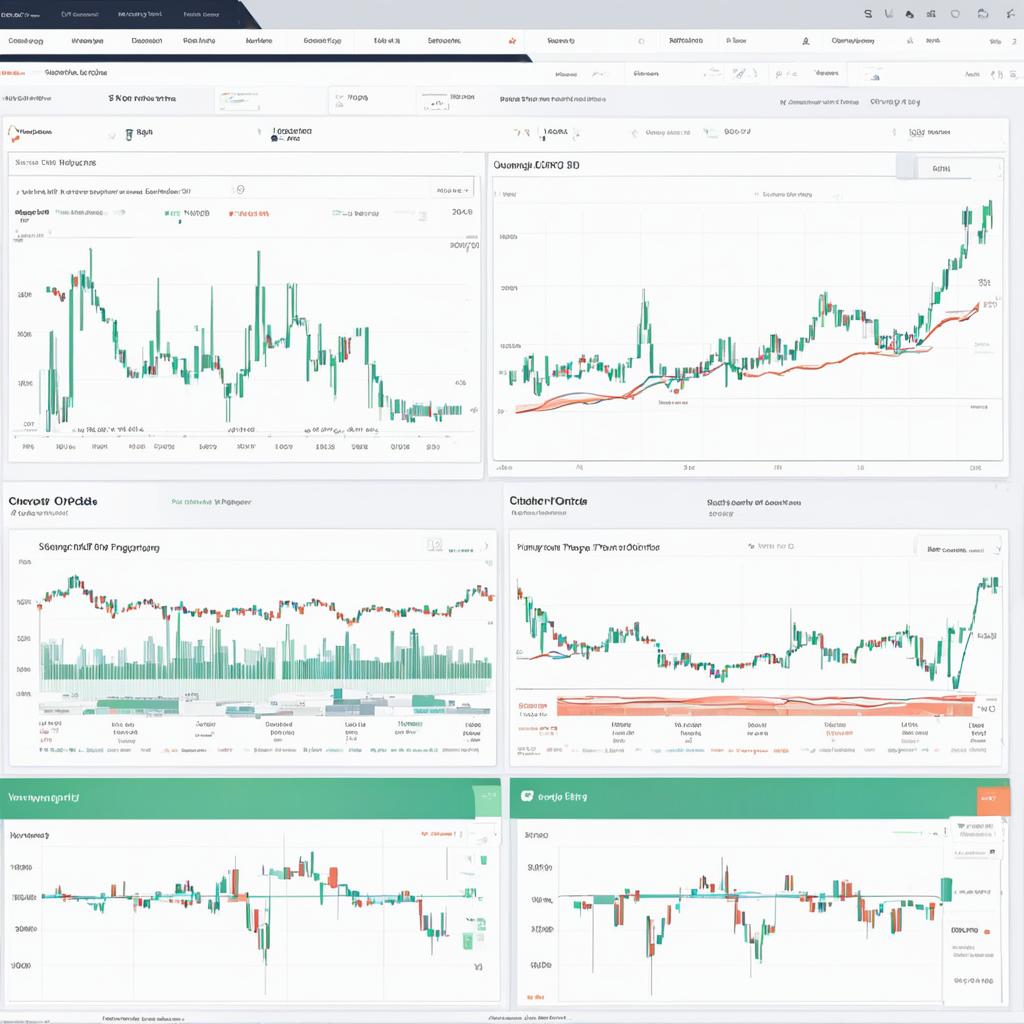When it comes to choosing an investment firm, the decision can feel overwhelming. That’s why I’m here to help you compare two of the most popular options: Vanguard and Fidelity. Both firms have a strong reputation and offer a range of investment products, but understanding their differences can help you make an informed choice.
Let’s start by taking a closer look at Vanguard and Fidelity. Vanguard is known for its long-term, buy-and-hold investing philosophy. They prioritize low-cost funds and have an impressive $8.1 trillion in assets under management. On the other hand, Fidelity caters to investors who want a more hands-on experience and manages about $4.4 trillion.
Key Takeaways
- When choosing between Vanguard and Fidelity, consider factors such as investment philosophy, account and investment options, performance and cost, management options, functionality and tools, and overall appeal.
- Vanguard focuses on long-term, low-cost investing, while Fidelity offers a more hands-on approach.
- Vanguard has $8.1 trillion in assets under management, while Fidelity manages $4.4 trillion.
- Take the time to analyze historical performance, fees, and the specific needs of your investment strategy before making a decision.
- Ultimately, the best choice between Vanguard and Fidelity depends on your individual preferences and investment goals.
Size and Investment Philosophy
When comparing Vanguard and Fidelity, two major investment firms, it is important to consider their size and investment philosophy. Fidelity, founded in 1946, has established itself as one of the largest investment companies globally, serving over 43 million investors. With a long-standing reputation and a wide range of offerings, Fidelity has become a trusted choice for many individuals seeking investment solutions.
Vanguard, on the other hand, was launched in 1975 and follows the investment philosophy of its founder, John Bogle. Bogle’s approach emphasizes long-term investing in low-cost index funds, making Vanguard a preferred choice for investors who prioritize a buy-and-hold strategy. With over 50 million investors, Vanguard has gained a loyal following by promoting a disciplined, low-cost approach to investing.
Account and Investment Options
When it comes to account and investment options, both Vanguard and Fidelity provide a wide range of choices to suit different investor needs. Let’s take a closer look at what each firm offers:
Vanguard
Vanguard understands the importance of retirement planning, offering various retirement accounts such as Roth and traditional IRAs, 403(b) services, individual 401(k) plans, and retirement options for self-employed individuals and business owners. These accounts provide investors with tax advantages and long-term growth opportunities.
Fidelity
Fidelity also recognizes the need for retirement savings but goes beyond that by offering additional account options. In addition to retirement accounts, Fidelity provides health savings accounts (HSAs), which offer tax benefits when used for qualified medical expenses. Furthermore, Fidelity allows investors to dive into the world of cryptocurrencies, giving them the opportunity to invest in digital assets.
Both Vanguard and Fidelity give investors the flexibility to choose the account types that align with their investment goals and preferences. Whether it’s planning for retirement or exploring innovative investment opportunities, these firms have you covered.
In our next section, we will compare the performance and cost factors of Vanguard and Fidelity, helping you make a more informed decision.
Performance and Cost
When considering Vanguard vs. Fidelity, it’s important to evaluate the performance and cost of each investment firm. Both Vanguard and Fidelity offer a range of investment options, but there are key differences in their performance track records and associated fees.
Vanguard is known for its low-cost index funds, which have consistently delivered impressive performance. These funds are designed to track the performance of a specific market index, such as the S&P 500, and often outperform actively managed funds over the long term. Vanguard’s emphasis on low-cost investing allows investors to keep more of their returns.
Fidelity, on the other hand, offers a comparable selection of funds but generally has higher fees compared to Vanguard. While Fidelity’s funds have also shown strong performance, investors should carefully consider the impact of these fees on their overall returns. It’s essential to thoroughly analyze the historical performance and expenses of each fund before making an investment decision.
“The performance and cost of an investment firm are crucial factors to consider when selecting the right option for your financial goals. Vanguard’s low-cost index funds have consistently delivered impressive results, while Fidelity’s funds offer comparable performance but often come at a higher cost.
To illustrate the difference in performance and cost between Vanguard and Fidelity, let’s take a closer look at two popular funds offered by each firm:
| Fund | Vanguard | Fidelity |
|---|---|---|
| Vanguard 500 Index Fund | S&P 500 index tracking | Expense Ratio: 0.04% |
| Fidelity Contrafund | Actively managed | Expense Ratio: 0.85% |
As shown in the table above, Vanguard’s 500 Index Fund tracks the S&P 500 and has a significantly lower expense ratio of 0.04%, making it an attractive option for cost-conscious investors. The Fidelity Contrafund, while actively managed, comes with a higher expense ratio of 0.85%. This higher cost can eat into potential returns over time.
It’s important to note that past performance does not guarantee future results. Investors should carefully research and consider their own investment objectives, risk tolerance, and desired asset allocation before making investment decisions.
Management Options
When it comes to management options, Vanguard and Fidelity both offer a diverse range of investment choices to cater to different investor preferences and goals. Let’s take a closer look at what each firm brings to the table.
Vanguard: Index Funds and Actively Managed Funds
Known for its expertise in index funds, Vanguard has built a strong reputation for providing low-cost, passively managed investment options. Index funds aim to replicate the performance of a specific market index, such as the S&P 500, by holding a diversified portfolio of securities that mirror the index’s composition.
However, Vanguard also offers actively managed funds that are overseen by their team of experienced portfolio managers. These funds aim to outperform the market through careful selection and analysis of securities, which involves more active decision-making and research.
Vanguard’s combination of index funds and actively managed funds provides investors with a comprehensive range of choices to suit their investment strategies and risk tolerance.
Fidelity: Active and Passive Funds for Every Investor
Fidelity, on the other hand, takes a more balanced approach by providing a wide variety of both active and passive investment options. Their active funds are managed by a team of seasoned investment professionals who actively research and select securities to achieve superior returns.
Fidelity’s active funds cater to investors who prefer a more hands-on approach, seeking potential opportunities in the market. Additionally, Fidelity offers a strong lineup of passively managed funds, including their own index funds, which provide investors with a cost-effective way to gain exposure to the market.
With Fidelity’s extensive range of active and passive funds, investors can choose the management style that aligns with their investment goals and overall strategy.
Comparison: Vanguard vs. Fidelity Management Options
To summarize, Vanguard is renowned for its expertise in index funds and offers a selection of actively managed funds for investors seeking potentially higher returns. On the other hand, Fidelity provides a wider array of both active and passive funds, giving investors more flexibility and choices to tailor their portfolios according to their preferences.
Ultimately, the decision between Vanguard and Fidelity comes down to the individual investor’s investment philosophy, risk tolerance, and desired level of involvement in managing their investments.

Functionality and Tools
When it comes to functionality and tools, Vanguard and Fidelity offer distinct experiences tailored to different types of investors.
Vanguard: Vanguard’s platform is designed with a focus on buy-and-hold investing. It provides a user-friendly interface and intuitive navigation, making it easy for long-term investors to manage their portfolios. However, one area where Vanguard falls short is the availability of real-time data and customization options. While the platform offers essential features for monitoring investments, investors looking for advanced tools may find Vanguard lacking in this aspect.
Fidelity: On the other hand, Fidelity’s platform stands out for its comprehensive functionality and robust toolset. It offers a wide range of advanced tools for charting, screening, and technical analysis, empowering investors to make more informed decisions. Fidelity’s platform is particularly well-suited for day traders and investors who prefer a hands-on approach to managing their investments. With Fidelity, investors have access to real-time data, customizable dashboards, and a wealth of research and educational resources.
Ultimately, the choice between Vanguard and Fidelity in terms of functionality and tools depends on your investment style and preferences. If you prefer a simpler, buy-and-hold approach, Vanguard’s platform may suffice. However, if you want advanced tools and real-time data at your fingertips, Fidelity offers a more comprehensive suite of features.
Overall Appeal
When considering Vanguard and Fidelity, the overall appeal of each investment firm is subjective and depends on individual preferences and investment goals. While both firms offer a range of services and features, there are distinct differences in their target audience and offerings.
Vanguard:
Vanguard is particularly well-suited for long-term and retirement investors. The firm’s investment philosophy, focused on long-term, buy-and-hold strategies, aligns with the goals of investors seeking stability and steady growth over time.
Fidelity:
Fidelity, on the other hand, caters to casual investors and traders who want access to a broader range of tools and technical analysis. The firm provides a more hands-on experience and offers advanced functionality and resources to assist investors in making informed decisions.
In essence, Vanguard’s overall appeal lies in its dedication to a disciplined investment approach and the availability of low-cost funds. For those planning for retirement or seeking long-term wealth accumulation, Vanguard offers a reliable platform and investment options.
Fidelity’s overall appeal, on the other hand, stems from its emphasis on catering to a wider range of investors, including active traders and those who prefer a more involved investment experience. Fidelity’s robust suite of tools and resources allows investors to customize and personalize their investing strategies.
“The overall appeal of Vanguard and Fidelity depends on individual preferences and investment goals.”
To help you better understand the appeal of each investment firm, consider the following key factors:
- Investment Philosophy: Vanguard focuses on long-term, buy-and-hold investing, while Fidelity provides a more hands-on experience with a range of investment strategies.
- Account and Investment Options: Vanguard offers various retirement accounts, while Fidelity offers additional options such as health savings accounts and the ability to invest in cryptocurrencies.
- Functionality and Tools: Vanguard’s platform is geared towards buy-and-hold investors, while Fidelity offers more advanced tools for charting and screening.
- Performance and Cost: Vanguard offers a range of low-cost index funds, while Fidelity has a comparable selection but generally higher fees.
- Management Options: Both Vanguard and Fidelity offer actively managed and passively managed funds, catering to different investment styles.
By taking these factors into consideration, investors can make an informed decision and choose the investment firm that best aligns with their goals and preferences.

Usability (Vanguard vs. Fidelity)
In today’s digital age, user experience plays a crucial role in the success of any online platform. When it comes to usability, both Vanguard and Fidelity have made efforts to enhance their websites and provide a seamless investing experience. Let’s compare their usability and explore the key differences.
Vanguard’s User-Friendly Website
Over the years, Vanguard has improved its website to offer a more intuitive and user-friendly interface. The website’s clean design and straightforward navigation make it easy for investors to find the information they need. Whether you’re a novice investor or an experienced one, Vanguard’s website provides a pleasant and accessible experience.
However, Vanguard’s website does have its limitations. One area where it falls short is real-time data. Unlike Fidelity, Vanguard’s website does not offer real-time market updates, which can be a disadvantage for traders or investors who rely on up-to-the-minute information. Additionally, customization options are limited on Vanguard’s platform.
Fidelity’s Feature-Rich Platform
Fidelity places a strong emphasis on providing a feature-rich platform that caters to the needs of all types of investors. Their website offers a wide range of tools and resources that go beyond basic investing needs, making it a go-to choice for both beginners and seasoned investors.
| Fidelity’s Website Highlights | Benefits |
|---|---|
| Advanced Tools | Fidelity’s website provides advanced charting tools and screening capabilities, allowing investors to analyze stocks, track market trends, and make informed investment decisions. |
| Educational Resources | Fidelity offers an extensive library of educational resources, including articles, tutorials, webinars, and videos, ensuring investors can access valuable information and broaden their investment knowledge. |
| Mobile App | Fidelity’s Mobile App is highly rated and offers a seamless user experience, allowing investors to manage their portfolios, execute trades, and access real-time data while on the go. |
Fidelity’s platform stands out for its comprehensive set of tools, which can give investors an edge when it comes to research and decision-making. Whether you’re a beginner exploring the basics of investing or an experienced investor seeking sophisticated analysis tools, Fidelity’s website has something to offer.
Ultimately, the choice between Vanguard and Fidelity depends on your investing style, goals, and personal preferences. If user-friendliness and a clean design are your priorities, Vanguard’s website may be the right fit. However, if you’re looking for a platform with a broader range of tools and resources, Fidelity’s website is likely to surpass your expectations.
Trade Experience (Vanguard vs. Fidelity)
When it comes to trade experience, Vanguard and Fidelity offer different platforms that cater to the needs of different types of investors. Let’s compare their trade experience to see which one may be a better fit for you.
Vanguard’s Trade Experience
Vanguard’s trading platform is designed with passive investors in mind. It provides a straightforward and intuitive interface that allows investors to execute trades with ease. However, it lacks some of the advanced features and responsiveness that active traders may require.
While Vanguard’s trading platform may not offer the same level of sophistication as other platforms, it still provides the necessary tools for passive investors to manage their portfolios effectively. It allows users to place basic order types such as market, limit, and stop-limit orders.
Fidelity’s Trade Experience
Fidelity’s trading platform offers a more robust and comprehensive experience for traders of all types. It provides advanced order types, charting tools, and extensive technical analysis capabilities, making it suitable for both buy-and-hold investors and active traders.
With Fidelity’s platform, investors have access to a wide range of order types, including conditional orders like one-cancels-the-other (OCO) and one-triggers-the-other (OTO). These advanced order types allow traders to set specific conditions for their trades, providing more flexibility and control.
Furthermore, Fidelity’s platform includes robust charting capabilities, allowing investors to analyze market trends and make informed trading decisions. The platform also offers various technical analysis tools and indicators, providing additional support for active traders.
Overall, Fidelity’s trading platform offers a more comprehensive trading experience with advanced features and tools that cater to the needs of both buy-and-hold investors and active traders.
| Vanguard | Fidelity | |
|---|---|---|
| Advanced Order Types | No | Yes |
| Charting Tools | Basic | Advanced |
| Technical Analysis | Limited | Extensive |
As shown in the table above, Fidelity’s platform offers advanced order types, more comprehensive charting tools, and extensive technical analysis capabilities, giving investors a broader range of options and analysis tools compared to Vanguard’s trading platform.
Whether you prefer a simpler trading experience as a passive investor or desire the advanced features and tools for more active trading, understanding the trade experience offered by Vanguard and Fidelity is crucial in making an informed decision.

Range of Offerings: Vanguard vs. Fidelity
When comparing Vanguard and Fidelity, it’s important to consider the range of investment options they offer. Both firms provide a diverse selection that caters to different investment preferences and goals. Let’s explore their offerings in more detail.
Vanguard Offerings
Vanguard boasts a comprehensive range of investment opportunities that cover various asset classes. Here are some of their key offerings:
- Equities: Vanguard offers a wide selection of domestic and international stocks, including large-cap, mid-cap, and small-cap funds.
- Bonds: Investors can choose from an array of bond funds, including government bonds, corporate bonds, municipal bonds, and more.
- ETFs: Vanguard is known for its extensive lineup of exchange-traded funds (ETFs), providing investors with diversified exposure to different market segments.
- No-Load, No-Fee Mutual Funds: Vanguard offers thousands of mutual funds without any sales charges or transaction fees, making them cost-effective options for investors.
Fidelity Offerings
Fidelity also offers a wide range of investment options, expanding beyond the traditional asset classes. Consider the following offerings:
- Equities: Fidelity provides access to a diverse selection of stocks, including U.S. and international equities, sector-specific funds, and more.
- Bonds: Investors can choose from a variety of bond funds, such as government bonds, high-yield bonds, municipal bonds, and global bonds.
- ETFs: Fidelity offers a comprehensive range of ETFs, allowing investors to build a diversified portfolio with ease.
- Forex: Fidelity provides access to foreign currency trading, allowing investors to engage in the foreign exchange market.
- Precious Metals: Fidelity offers the opportunity to invest in precious metals like gold, silver, platinum, and palladium.
- OTCBB: Fidelity grants access to the OTC Bulletin Board (OTCBB), enabling investors to trade over-the-counter stocks.
- Fractional Shares: Fidelity allows investors to buy fractional shares of stocks, making it easier to invest in high-priced shares.
As you can see, Fidelity offers additional investment options like Forex, precious metals, OTCBB, and fractional shares, expanding the possibilities for investors seeking a more diverse portfolio.
| Vanguard | Fidelity |
|---|---|
| Equities | Equities |
| Bonds | Bonds |
| ETFs | ETFs |
| No-Load, No-Fee Mutual Funds | Forex |
| Precious Metals | |
| OTCBB | |
| Fractional Shares |
With a wide range of investment options available at both Vanguard and Fidelity, investors have the flexibility to tailor their portfolios according to their investment objectives and risk tolerance. Consider your investment preferences and goals when choosing between the two.
Order Types (Vanguard vs. Fidelity)
When it comes to order types, both Vanguard and Fidelity offer a range of options to cater to different investor needs. Let’s compare the order types supported by these two reputable investment firms.
Vanguard:
Vanguard provides basic order types that are commonly used by investors. These include:
- Market Orders: With a market order, you can buy or sell a security at the best available price in the market.
- Limit Orders: A limit order allows you to specify the maximum price you are willing to pay for a security when buying or the minimum price you are willing to accept when selling.
- Stop-Limit Orders: This order type combines a stop order and a limit order. It allows you to set a stop price at which the order is activated, and a limit price at which the order can be executed.
Fidelity:
Fidelity goes beyond the basic order types, offering a wider variety to enhance the trading experience for their customers. Here are some of the order types available:
- Conditional Orders: Fidelity supports conditional orders like one-cancels-the-other (OCO) and one-triggers-the-other (OTO). These allow you to link two orders, so when one is executed, the other is automatically canceled or triggered.
- Advanced Order Types: Fidelity’s web platform and Active Trader Pro offer advanced order types to cater to different trading strategies. These include trailing stop orders, stop-market orders, and bracket orders.
By offering a wider variety of order types, Fidelity provides more flexibility and customization options for traders. This can be particularly advantageous for those who employ more complex trading strategies and require additional control over their orders.

Trading Technology (Vanguard vs. Fidelity)
In today’s fast-paced market, trading technology plays a crucial role in executing trades efficiently. Let’s compare the trading technology offered by Vanguard and Fidelity to understand how they differ in this aspect.
Vanguard Trading Technology
Vanguard, known for its strong emphasis on long-term investing, has a trading platform that is geared towards buy-and-hold investors. While the platform is user-friendly and provides essential trading functionalities, it does not incorporate smart order routing technology.
Fidelity Trading Technology
On the other hand, Fidelity offers advanced trading technology that stands out in the industry. One key feature is the smart order routing, which seeks the best available price across different market venues. This technology ensures that Fidelity’s clients can achieve optimal execution on their trades.
Fidelity also provides transparent execution speed statistics, empowering traders to make informed decisions about their trades. Additionally, Fidelity reports a higher net price improvement compared to Vanguard, further demonstrating its commitment to delivering the best trading experience for its clients.
Overall, Fidelity surpasses Vanguard when it comes to trading technology, offering innovative features like smart order routing and transparent execution speed statistics. These capabilities give Fidelity’s clients a competitive edge in executing trades with efficiency and accuracy.
Costs (Vanguard vs. Fidelity)
When considering investment options, understanding the costs associated with each platform is crucial. Both Vanguard and Fidelity offer competitive fee structures, but there are some notable differences to consider.
Vanguard Costs
Vanguard is known for its low-cost approach to investing, offering investors $0 commissions for online equity, options, and ETF trades. This can lead to significant savings over time, especially for investors who frequently trade or have a large portfolio.
Fidelity Costs
Similarly, Fidelity also provides $0 commissions for online equity, options, and ETF trades. However, it’s worth noting that Fidelity has a higher option fee compared to Vanguard. On the flip side, Fidelity generally offers lower costs for mutual funds, making it an attractive option for investors looking to diversify their portfolio through these investment vehicles.
It’s important to consider all costs when comparing Vanguard and Fidelity, including broker-assisted trades and margin rates. These additional fees can vary depending on the specific services and support needed by individual investors.
Conclusion
When comparing Vanguard and Fidelity, it becomes clear that both investment firms have their unique advantages and disadvantages. To make an informed decision, it is crucial to evaluate various factors that align with your individual goals, investment style, and preferences.
Consider the size and investment philosophy of the firms. Vanguard, with assets under management of about $8.1 trillion, focuses on long-term, buy-and-hold investing, while Fidelity, serving more than 43 million investors, caters to those who prefer a more hands-on approach.
Analyze the account and investment options, performance and cost, management options, functionality and tools, and overall appeal of both firms. Vanguard offers a wide range of retirement accounts and low-cost index funds, while Fidelity provides additional options like health savings accounts and the ability to invest in cryptocurrencies.
Lastly, take into account the usability and trade experience each platform offers. Vanguard’s website is user-friendly but lacks real-time data, while Fidelity provides advanced tools and resources. Fidelity’s trading platform also offers more features, making it suitable for both passive investors and active traders.
FAQ
What factors should I consider when choosing between Vanguard and Fidelity?
When choosing between Vanguard and Fidelity, it’s important to consider factors such as size, investment philosophy, account and investment options, performance and cost, management options, functionality and tools, and overall appeal.
How does Vanguard compare to Fidelity in terms of size and investment philosophy?
Vanguard has assets under management of about .1 trillion, while Fidelity manages about .4 trillion. Vanguard focuses on long-term, buy-and-hold investing, while Fidelity caters to investors who want a more hands-on experience.
What account and investment options are available with Vanguard and Fidelity?
Vanguard offers multiple retirement accounts, including Roth and traditional IRAs, 403(b) services, individual 401(k) plans, and retirement options for self-employed individuals and business owners. Fidelity also has retirement accounts and additional options such as health savings accounts and the ability to invest in cryptocurrencies.
How do Vanguard and Fidelity perform in terms of performance and cost?
Vanguard offers a range of low-cost index funds with impressive performance. Fidelity has a comparable selection of funds, but its fees generally aren’t as competitive as Vanguard’s. It’s important to analyze the historical performance and expenses of each fund when making a decision.
What management options are available with Vanguard and Fidelity?
Both Vanguard and Fidelity offer both actively managed and passively managed funds. Vanguard is known for its index funds but also has high-performing actively managed funds. Fidelity provides a range of both active and passive funds, catering to different investment styles.
What functionality and tools do Vanguard and Fidelity offer?
Vanguard’s platform is geared towards buy-and-hold investors and lacks real-time data and customization options. Fidelity’s platform offers more advanced tools for charting and screening, making it a better choice for day traders and investors who want more hands-on functionality.
What is the overall appeal of Vanguard and Fidelity?
The overall appeal of Vanguard and Fidelity depends on individual preferences and investment goals. Vanguard is well-suited for long-term and retirement investors, while Fidelity is better for casual investors and traders who want access to more tools and technical analysis.
How does the usability of Vanguard compare to Fidelity?
Vanguard’s website has been updated and is more user-friendly, but it lacks real-time data and customization options. Fidelity’s website offers more tools and resources, making it easier for both beginners and seasoned investors to navigate and access advanced features.
What is the trade experience like with Vanguard and Fidelity?
Vanguard’s trading platform is adequate for passive investors but lacks advanced features and responsiveness. Fidelity’s platform offers a better trading experience with advanced order types, charting, and technical analysis, making it suitable for both buy-and-hold investors and active traders.
What range of offerings are available with Vanguard and Fidelity?
Both Vanguard and Fidelity offer a range of investment options, including equities, bonds, ETFs, and thousands of no-load, no-fee mutual funds. Fidelity also offers additional options like Forex, precious metals, OTCBB, and fractional shares.
What order types are available with Vanguard and Fidelity?
Vanguard supports basic order types like market, limit, and stop-limit orders, while Fidelity offers a wider variety, including conditional orders like one-cancels-the-other (OCO) and one-triggers-the-other (OTO). Fidelity’s web platform and Active Trader Pro also support more advanced order types.
What trading technology do Vanguard and Fidelity offer?
While Vanguard does not incorporate smart order routing technology, Fidelity offers smart order routing that seeks the best price available across different market venues. Fidelity also provides transparent execution speed statistics and reports a higher net price improvement.
What are the costs associated with Vanguard and Fidelity?
Both Vanguard and Fidelity offer
FAQ
What factors should I consider when choosing between Vanguard and Fidelity?
When choosing between Vanguard and Fidelity, it’s important to consider factors such as size, investment philosophy, account and investment options, performance and cost, management options, functionality and tools, and overall appeal.
How does Vanguard compare to Fidelity in terms of size and investment philosophy?
Vanguard has assets under management of about $8.1 trillion, while Fidelity manages about $4.4 trillion. Vanguard focuses on long-term, buy-and-hold investing, while Fidelity caters to investors who want a more hands-on experience.
What account and investment options are available with Vanguard and Fidelity?
Vanguard offers multiple retirement accounts, including Roth and traditional IRAs, 403(b) services, individual 401(k) plans, and retirement options for self-employed individuals and business owners. Fidelity also has retirement accounts and additional options such as health savings accounts and the ability to invest in cryptocurrencies.
How do Vanguard and Fidelity perform in terms of performance and cost?
Vanguard offers a range of low-cost index funds with impressive performance. Fidelity has a comparable selection of funds, but its fees generally aren’t as competitive as Vanguard’s. It’s important to analyze the historical performance and expenses of each fund when making a decision.
What management options are available with Vanguard and Fidelity?
Both Vanguard and Fidelity offer both actively managed and passively managed funds. Vanguard is known for its index funds but also has high-performing actively managed funds. Fidelity provides a range of both active and passive funds, catering to different investment styles.
What functionality and tools do Vanguard and Fidelity offer?
Vanguard’s platform is geared towards buy-and-hold investors and lacks real-time data and customization options. Fidelity’s platform offers more advanced tools for charting and screening, making it a better choice for day traders and investors who want more hands-on functionality.
What is the overall appeal of Vanguard and Fidelity?
The overall appeal of Vanguard and Fidelity depends on individual preferences and investment goals. Vanguard is well-suited for long-term and retirement investors, while Fidelity is better for casual investors and traders who want access to more tools and technical analysis.
How does the usability of Vanguard compare to Fidelity?
Vanguard’s website has been updated and is more user-friendly, but it lacks real-time data and customization options. Fidelity’s website offers more tools and resources, making it easier for both beginners and seasoned investors to navigate and access advanced features.
What is the trade experience like with Vanguard and Fidelity?
Vanguard’s trading platform is adequate for passive investors but lacks advanced features and responsiveness. Fidelity’s platform offers a better trading experience with advanced order types, charting, and technical analysis, making it suitable for both buy-and-hold investors and active traders.
What range of offerings are available with Vanguard and Fidelity?
Both Vanguard and Fidelity offer a range of investment options, including equities, bonds, ETFs, and thousands of no-load, no-fee mutual funds. Fidelity also offers additional options like Forex, precious metals, OTCBB, and fractional shares.
What order types are available with Vanguard and Fidelity?
Vanguard supports basic order types like market, limit, and stop-limit orders, while Fidelity offers a wider variety, including conditional orders like one-cancels-the-other (OCO) and one-triggers-the-other (OTO). Fidelity’s web platform and Active Trader Pro also support more advanced order types.
What trading technology do Vanguard and Fidelity offer?
While Vanguard does not incorporate smart order routing technology, Fidelity offers smart order routing that seeks the best price available across different market venues. Fidelity also provides transparent execution speed statistics and reports a higher net price improvement.
What are the costs associated with Vanguard and Fidelity?
Both Vanguard and Fidelity offer $0 commissions for online equity, options, and ETF trades. Fidelity has a higher option fee but is cheaper for mutual funds. It’s important to consider all fees, including broker-assisted trades and margin rates, when comparing costs.
Which investment firm should I choose, Vanguard or Fidelity?
The best choice between Vanguard and Fidelity depends on your specific goals, investment style, preferences, and the services and features that align with your needs. Consider factors like size, investment philosophy, account and investment options, performance and cost, management options, functionality and tools, and overall appeal when making a decision.
commissions for online equity, options, and ETF trades. Fidelity has a higher option fee but is cheaper for mutual funds. It’s important to consider all fees, including broker-assisted trades and margin rates, when comparing costs.
Which investment firm should I choose, Vanguard or Fidelity?
The best choice between Vanguard and Fidelity depends on your specific goals, investment style, preferences, and the services and features that align with your needs. Consider factors like size, investment philosophy, account and investment options, performance and cost, management options, functionality and tools, and overall appeal when making a decision.
Our Friends
- https://www.investopedia.com/vanguard-vs-fidelity-4587961
- https://www.nerdwallet.com/article/investing/vanguard-vs-fidelity
- https://money.usnews.com/investing/articles/vanguard-versus-fidelity-which-is-best-for-you
Money posts:
 Vanguard Personal Advisor Service Review
Vanguard Personal Advisor Service Review
 M1 Finance vs Fidelity: Which Brokerage Is Best? (2024)
M1 Finance vs Fidelity: Which Brokerage Is Best? (2024)
 Interactive Brokers Review (2024)
Interactive Brokers Review (2024)
 Webull vs. Robinhood | What Sets Them Apart?
Webull vs. Robinhood | What Sets Them Apart?
 Webull vs. TD Ameritrade: Which Broker is Best for You?
Webull vs. TD Ameritrade: Which Broker is Best for You?
 Is Robinhood Gold Worth It? (What $5 per Month Gets You) (2024)
Is Robinhood Gold Worth It? (What $5 per Month Gets You) (2024)
 Wealthsimple Review | Plans + Features + Pros & Cons (2024)
Wealthsimple Review | Plans + Features + Pros & Cons (2024)
 What is a Broker-Dealer? (2024)
What is a Broker-Dealer? (2024)

